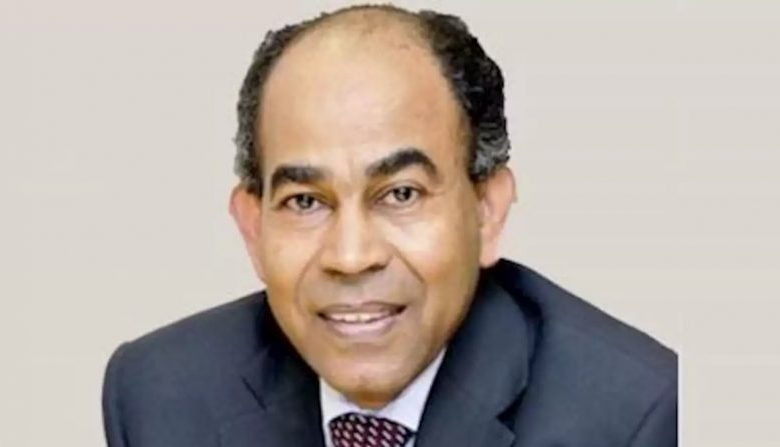The Hidden Enemy in Sudan’s War!

By Othman Mirghani
Sudan’s new Prime Minister, Dr. Kamal El-Din Idris, faces enormous challenges as he assumes office at one of the most complex and critical moments in the country’s history. He takes the helm of a nation ravaged by a devastating war, crippled economy, crumbling infrastructure, decaying institutions, and a resilient population enduring extreme hardship. In his inaugural speech after being sworn in, Prime Minister Idris acknowledged the immense responsibility before him and declared his readiness to work according to a vision outlined in his two books, which he presented publicly on camera.
Amid the extensive agenda awaiting his government, one of the most significant challenges may not lie in the visible tasks—of which there are many—but in the “hidden enemy” that has been eating away at the state for years: corruption.
While corruption is a long-standing issue in the war-torn country, it often takes on new and more dangerous forms during times of conflict—when state institutions become more fragile, effective oversight diminishes, and some exploit the dire security and economic conditions to manipulate systems, steal public and private funds, and undermine the public trust. Since the outbreak of the war, numerous reports of widespread corruption have surfaced—ranging from aid distribution and government appointments to public funds and even moral decay.
These are not mere public accusations. Several state leaders have spoken about it openly, including General Abdel Fattah al-Burhan, who criticized irregularities in the civil service and favoritism in appointments. The Vice President of the Sovereign Council, Malik Agar, went as far as describing corruption as “rampant.”
In reality, corruption is no longer an exceptional case or an individual behavior—it has become a way of life. It doesn’t just weaken the economy—it threatens the very foundations of the state. Therefore, what Sudan needs today is a real battle against corruption, one that goes beyond rhetoric and embraces comprehensive and radical institutional reform. Fighting corruption under current conditions is not merely a popular demand or administrative luxury; it is a national necessity, a fundamental prerequisite for reform, reconstruction, attracting investment, and restoring trust between citizens and the state. What is needed is not only a clear political will but also a comprehensive battle fought with effective tools and actionable plans.
Where to begin?
Prime Minister Kamal El-Din Idris’s government has several paths it could take to open a new horizon in the fight against corruption. To succeed, he will need full support from all other branches of the state. Potential steps the government could take include:
Establishing an independent national anti-corruption commission with real authority.
Setting up a specialized court for corruption crimes, combining efficiency and speed to prevent cases from getting lost in bureaucratic mazes.
Enacting a strict financial disclosure law covering senior officials and state employees.
Expanding digital public service platforms to minimize direct contact and reduce opportunities for bribery—through a unified portal covering customs, taxes, procurement, licensing, and more.
Launching a nationwide media campaign with strong anti-corruption slogans that speak directly and frequently to the public, turning the message into a powerful popular rallying cry that reaches all officials.
Alongside awareness campaigns, there must also be protections for journalists to enable investigative reporting on corruption, along with whistleblower protection systems.
No reform is complete without cleansing sensitive positions in the judiciary, police, customs, tax authorities, ports, and border crossings. Civil society must also be empowered to participate in public oversight and ensure transparency and accountability.
There are many successful global examples of countries that tackled corruption with strong campaigns and concrete measures, proving that reform is possible when political will exists. Rwanda, for example, emerged from the genocidal atrocities of the 1990s as a failed state mired in violence and corruption, yet chose a path of reform and reconstruction. It adopted a zero-tolerance policy toward corruption, strengthened the audit and oversight office, created a specialized anti-corruption agency and courts, and prosecuted high-profile figures. Similarly, Singapore, once a poor country with limited resources and endemic corruption until the 1960s, pursued a path of reform and progress. It established effective oversight mechanisms, ensured judicial independence, passed strict laws, and provided attractive salaries for civil servants and law enforcement officials to deter bribery. In parallel, it enforced strict accountability and prosecution systems.
If Dr. Kamal El-Din Idris’s government comes merely to appease the existing corruption, it will make no difference—and only add to public frustration. But if it arrives with the spirit of a “last chance,” and is supported by other state leaders, it may mark a turning point for Sudan. Still, the battle won’t be easy—it will require political courage, moral revolution, and a firm belief that corruption is not a fate, but a battle that must be won if Sudan is ever to recover and rise again.
Source: Asharq Al-Awsat



